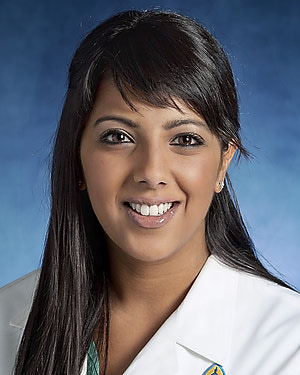Research Lab Results
-
Christine Durand Lab
Dr. Christine Durand, assistant professor of medicine and oncology and member of the Johns Hopkins Kimmel Cancer Center, is involved in clinical and translational research focused on individuals infected with HIV and hepatitis C virus who require cancer and transplant therapies. Her current research efforts include looking at outcomes of hepatitis C treatment after solid organ transplant, the potential use of organs from HIV-infected donors for HIV-infected solid organ transplant candidates, and HIV cure strategies including bone marrow transplantation. Dr. Durand is supported by multiple grants: • R01 from the National Institute of Allergy and Infectious Diseases (NIAID) to study HIV-to-HIV organ transplantation in the US. • K23 from the National Cancer Institute (NCI) to study antiretroviral therapy during bone marrow transplant in HIV-1 infection. • U01 from the NIAID to study HIV-to-HIV deceased donor kidney transplantation. U01 from the NIAID to study HIV-to-HIV deceased donor liver transplantation.
-
Craig W. Hendrix Lab
Research in the Craig W. Hendrix Lab concentrates on the chemoprevention of HIV infection, clinical pharmacology of antiviral drugs, drug interactions, and oral, topical and injectable HIV microbicide development. Our lab conducts small, intensive sampling studies of PK and PD of drugs for HIV prevention with a focus on developing methods to better understand HIV and drug distribution in the male genital tract, female genital tract and lower gastrointestinal tract. We also support numerous HIV pre-exposure prophylaxis development studies from phase I to phase III, largely as leader of the Pharmacology Core Laboratory of both the Microbicide Trial Network and HIV Prevention Trials Network. -
Charles W. Flexner Laboratory
A. Laboratory activities include the use of accelerator mass spectrometry (AMS) techniques to measure intracellular drugs and drugs metabolites. AMS is a highly sensitive method for detecting tracer amounts of radio-labeled molecules in cells, tissues, and body fluids. We have been able to measure intracellular zidovudine triphosphate (the active anabolite of zidovudine) in peripheral blood mononuclear cells from healthy volunteers given small doses of 14C-zidovudine, and have directly compared the sensitivity of AMS to traditional LC/MS methods carried out in our laboratory. B. Clinical research activities investigate the clinical pharmacology of new anti-HIV therapies and drug combinations. Specific drug classes studied include HIV reverse transcriptase inhibitors, protease inhibitors, entry inhibitors (selective CCR5 and CXCR4 antagonists), and integrase inhibitors. Scientific objectives of clinical studies include characterization of early drug activity, toxicity, and pharmacokinetics. Additional objectives are characterization of pathways of drug metabolism, and identification of clinically significant harmful and beneficial drug interactions mediated by hepatic and intestinal cytochrome P450 isoforms.
-
Clinical Laboratory and Biomarkers Core
The Clinical Laboratory and Biomarkers Cores will coordinate access to laboratory expertise, testing, training, specimen repositories and Good Clinical Laboratory Practices (GCLP). The goals of this core are to assure that all JHU HIV investigators have access to and utilize appropriate, validated and, where applicable, certified laboratory assays. The core will also maintain a biomarker specimen repository for storage cataloguing and utilization of biological specimens. -
Chloe Thio Lab
Research in the Chloe Thio lab focuses on several areas. First, HBV virology and immunology in HBV monoinfected and HIV-HBV co-infected individuals that will ultimately help develop a cure for HBV. Second, HCV infection in men who have sex with men. Third, non-alcoholic fatty liver disease with a focus on HIV-infected individuals. Fourth, host genetic determinants of spontaneous HBV recovery and HCV clearance.
-
The Coleman Research Group for Sexual and Reproductive Health
A clinical research group working to advance the field of gynecology through medical innovation, by increasing quality of medical care, and by closing gaps in access to sexual and reproductive healthcare and education. Our team has a number of ongoing and completed projects in the sexual and reproductive health field related to the prevention and treatment of sexually transmitted infections (STIs) and HIV, menstrual disorders, and adolescent sexual and reproductive healthcare. -
Bryan Lau Lab
The Bryan Lau Lab is interested in epidemiological and statistical methods for cohort studies and the application of these methods primarily to HIV cohort studies. We’re particularly interested in developing new methods and using approaches from other disciplines as novel solutions to specific epidemiologic issues. -
Bhakti Hansoti Lab
Research in the Hansoti Lab centers on the intersection of public health interventions for vulnerable populations and emergency department care. The lab employs implementation science methodologies, with a particular emphasis on mixed-methods research to design, develop, and evaluate innovative, evidence-based strategies that support socially vulnerable patients.
In South Africa, the team is pioneering strategies to enhance HIV prevention and intervention delivery within emergency departments, focusing on improving HIV service delivery for patients missed within the health system and delivering preventative care strategies to patients at high risk of HIV acquisition. These efforts are concentrated at Tygerberg Hospital and Gugulethu Clinic, in partnership with the Desmond Tutu HIV Foundation.
Domestically, the lab conducts research on opioid use disorder (OUD), specifically addressing post-discharge health system challenges related to linkage to care and retention for patients prescribed medications for opioid use disorder (MOUD). This includes addressing social determinants of health to strengthen HIV services for patients who present to the ED.
Additionally, Dr. Hansoti has a dedicated focus on surveillance strategies for high-consequence pathogens in emergency departments. She serves as the Principal Investigator for the Clinical Characterization Protocol for Severe Emerging Infections (CCPSEI) and manages cohorts for both COVID-19 and mpox, in collaboration with experts in public health, epidemiology, and infectious diseases from the Johns Hopkins School of Public Health.

-
David Thomas Lab
The David Thomas Lab oversees clinical research projects that aim to understand the natural history and pathogenesis of hepatitis C virus infection. A special area of clinical and research focus is liver disease in HIV-infected people.
-
David Graham Lab
The David Graham Lab studies the consequences of HIV interactions with the immune system, the resulting pathogenesis and how to sabotage these interactions. We apply advanced technologies like mass spectrometry to dissect processes at the molecular level. We are also actively involved in cardiovascular research and studies the ways proteins are organized into functional units in different cell types of the heart. Major projects in our lab are organized into three major areas: (1) H/SIV pathogenesis and neuropathogenesis, (2) Cardiovascular disease, and (3) High technology development

